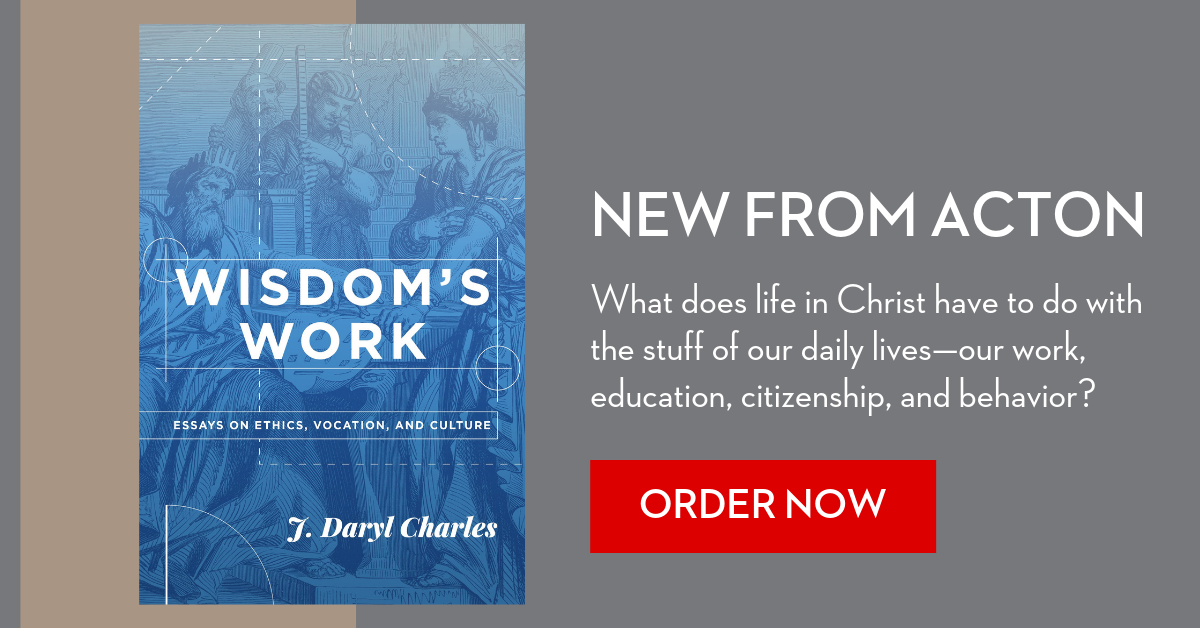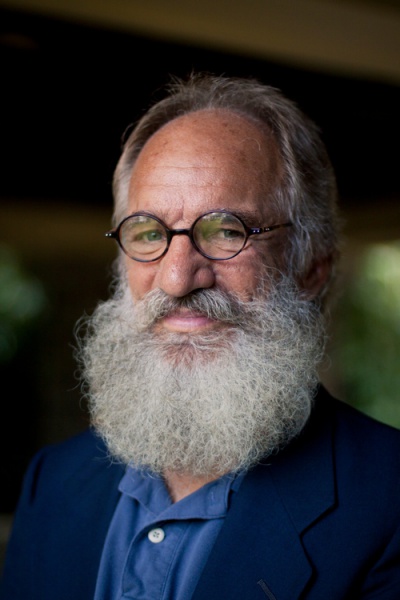It has been standard in Christian circles for much of the church’s history to speak of three general types of calling—a calling to Christ, a calling to a specific task or service, and a calling to one’s daily obligations.
The Puritans—and many Reformed types who followed suit in the Protestant tradition—tended to emphasize two callings—a general and a special calling. Out of the general calling to Christ and his lordship, specific avenues and types of service are assumed, suggested not only by New Testament texts such as Romans but also by the Protestant Reformation context wherein Luther, for example, speaks of various life “stations.” Vocation, properly understood, encompasses the totality of our lives, not merely our career, occupation, present job, or so-called retirement—although vocation does encompass all of those, yet more. Because of the overarching nature of our calling to follow Christ, it makes sense that this calling is expressed through our careers, our occupations, and our jobs.
Moreover, everyone has a calling, even when many do not have a clearly defined career or occupation. In other words, my work, my job, or my career might come to an end, but my calling (my vocation), which is all-encompassing and broader, does not. In addition, there might be different seasons within my calling—seasons that seem to involve unrelated jobs, responsibilities, or duties—yet all this occurs within my wider calling. We may encounter detours, changes, or transitions, so that the sheer mystery of walking by faith requires that we employ basic discernment—a discernment that will stabilize us in an awareness of our wider calling and in God’s providential care. And because calling operates on the basis of our response, through affection rather than coercion, it follows that we can deny or resist our calling. This can occur by several means—for example, insensitivity, indifference, or disobedience.
Vocational questions, it needs emphasizing, follow us through various stages of our lives—not just when we head off to college, not just when we graduate from college and enter the workforce, but in middle adulthood and later adulthood as well. In any case, the Christian wrestles with—and keeps in tension—two basic vocational questions: How is God calling me to serve him at this time, in this season of life? And, moreover, what is my wider calling in life, for which I have been given particular gifts, abilities, capacities, and passions or burdens? Having a sense of the latter—an awareness of my wider calling in life—will give meaning and purpose to the particular season in which I presently find myself.
Perhaps the reader is thinking, “Daryl, all well and good, and very interesting, but what do we mean in practical terms by vocation?” “What does it mean for me to think vocationally?” Perhaps we can answer in the form of several qualifying definitions of the concept of vocation.
Properly (and biblically) understood:
- Vocation entails the awareness that we do not choose our calling; rather, it “chooses” us. Just as none of us chooses our DNA, our families, or our children, in the same way we receive our vocation from God. In fact, it is more accurate to say that we discover rather than receive our vocation, and this discovery tends to be a gradual process.
- Vocation entails the meeting of genuine human need around us. While we cannot meet every need around us, we are equipped in such a way as to be able—through gifts and abilities, energy and influence—to meet some need in a strategic and practical sense.
- Vocation also entails our recognition of skills, talents, and abilities that have been given to each of us by God and of which we are stewards; moreover, it presumes an intentional and guided development of those skills, talents, and abilities.
- Vocation entails a willing desire to serve others, meet genuine need, and thereby serve the common good. What is the Great Commandment identified in the Old Testament and reiterated by Jesus in the New Testament? Love God and love your neighbor. That is our calling.
- Vocation entails the recognition that in serving others and the common good we are expressing service and worship—true worship—to God.
- Vocation entails the recognition that we are placed in the world (even when we are not “of” it) and that this placement is in a particular sociocultural context of the world.
- Vocation entails the basic awareness that based on the image of God (i.e., his likeness), we are created for work, which is a form of worship.
- And finally, vocation entails the recognition of work’s intrinsic worth, dignity, and value; therefore, work is its own reward in terms of a certain level of satisfaction. Work must not be our identity, but it does offer a measure of satisfaction, properly viewed.
All these definitions or descriptions of vocation or calling have their foundation in theological truth. I refer specifically to the doctrines of creation, providence, redemption, and incarnation, all of which are interlocking and inform one other. A few comments on these doctrines are in order.
In creation we see God calling into existence what he had purposed before the foundations of the created order even appeared. And the centerpiece of creation is the human person, in which is found the imago Dei, the very likeness of God. Moreover, based on this likeness, humans are coregents of creation, co-creating, molding, shaping, and extending the created order.
Providence implies meaning and purpose, and it also implies redemption and restoration. It is a distortion to view “the hand of providence” as some rare intervention; rather, it is a moment-by-moment, hour-by-hour, day-by-day presence and guiding of human affairs. Providence is ceaselessly, not occasionally, operative in the affairs of people and nations. This in itself renders daily life and the “mundane” meaningful and purposeful. It follows, then, that human affairs—and my individual life—work together toward a greater, broader design. God’s design, indeed, is both general and specific to each of us.
At the same time, it is important to clarify our understanding of divine providence. The doctrine of providence implies neither some form of fatalism nor a sort of determinism (to which we have to submit). Rather, it implies a purposefulness, which offers hope rather than resignation. Nor does providence cancel out the marvelous realm of free will and human moral agency. Judas’s treachery, even when it was allowed to stand, did not defeat Jesus’s work nor did it negate redemption; mysteriously, it was used by God toward his redemptive purpose.
Relatedly, we may insist that redemption is part of God’s very character, not an exception to it or some novel or wildly abstruse intervention that God needed to concoct. And incarnation, which is part of the redemptive process, is part of God’s character as well; it is his very nature, as the prologue to the Fourth Gospel makes abundantly clear: “In the beginning … the Word was God … And the Word became flesh and dwelt among us” (John 1:1, 14 RSV). God creates. God communicates. God restores. God sustains. And this creative redemptive program applies to “all things”—material and nonmaterial, visible and invisible, as Paul reminds us (Col. 1:15–20). All things belong to God in Christ through creation and redemption.
Where does this lead us? The realities of providence, incarnation, and redemption, alas, lead us neither to pronounce judgment on the world nor curse it, nor to flee from it, nor to isolate ourselves within it, but rather to enter it—with all its sin and anguish—and by God’s grace to help restore particular spheres of the created order. How? Through our lives and the God-given gifts of which we are stewards. When we offer ourselves in service to God and others, doors open so that redemptive light can shine into the created order. And when my self-offering joins that of millions of other believers, in the words of one theologian, there is “a wonderful, grand interconnectedness of the Holy Spirit” that realizes the biblical metaphors of salt, light, and leaven.
Providence, redemption, incarnation, and vocation, then, go hand in hand; they are mutually dependent on one another. Together they furnish our theological baseline.
The benefits of thinking vocationally, it must be emphasized, are many; and they are both profound and quite practical. Thinking vocationally will prevent us from a sort of chaotic, out-of-control, day-to-day, meaningless lifestyle that can plague us when we have no sense of direction. This mode of living, of course, takes its toll on us spiritually, mentally, and psychologically. For some of us, it can even lead to despair.
Relatedly, thinking vocationally liberates us from what is often called the tyranny of the urgent. It also liberates us from the common but insidious sacred-versus-secular view of work and calling. And it keeps us from a false sense of duty and conformity to the world and its standards, while also freeing us from comparing ourselves with others and becoming people pleasers. Living in the reverential fear of God rather than in the fear of what others think is liberating, causing us to be at peace with ourselves and giving us a boldness and confidence.





